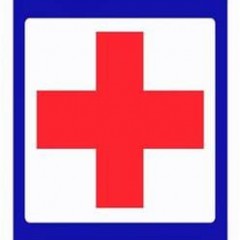
A recent article, “An Exploration of the Extent of Inclusion of Spirituality and Spiritual Care
Concepts in Core Nursing Textbooks,” noted: “Holistic care that encompasses a spiritual dimension is an expectation in modern healthcare. Increasing attention is being paid to the role of nurses in providing spiritual care to patients. However nurses lack specific skills and expertise in this area, and the extent to which their undergraduate education prepares them for this role is unclear.”
What do you expect by way of spiritual care in a hospital or doctor’s office setting? Do you expect, “holistic care that encompasses a spiritual dimension” in modern healthcare?
To determine the extent to which spiritual care concepts are addressed in core nursing textbooks, Fiona Timmins, M. Murphy, et al. sampled 543 books from the Nursing and Midwifery Core Collection list (UK). Fewer than a quarter of the books included content related to spirituality and religion. “While some books advocated the assessment of patients’ spiritual needs (32 percent) few referred specifically to assessment tools,” said the researchers, who advocated for the idea that, “It is essential that nurses are adequately prepared to address the spiritual needs of patients … True holistic care ought to permeate across textbooks and as such spirituality and spiritual care ought not to be sequestered to specialized texts.”
They seem to be equating holistic care with spiritual care, which I don’t think is quite right. They do highlight the idea that nurses are sometimes encouraged in a particular direction —the “assessment of patients’ spiritual needs”—without adequate training or assessment tools. If a nurse is asked to assess a patient’s blood pressure it is clear which tools they need to use. They have been trained in how to check someone’s blood pressure. There is a very small margin of error. If a nurse is expected to comfort someone who is seriously ill and afraid of death with concerns about the afterlife, the tools and techniques are less clear and much more nuanced.
What do you think? Should the responsibility for hospital patients’ spiritual care be with nurses, doctors and hospital psychologists? Should a chaplain or clergy person be employed by hospitals to serve the spiritual needs of the patients and family members? Should families and religious communities have sole responsibility for the spiritual care of members who are ill or injured?
Another article, “Do Spiritual Patients Want Spiritual Interventions?,” concluded: “Religion and spirituality played a central role in patients’ coping with cancer, providing comfort, hope, and meaning. Patients diverged when it came to spiritual support, with some enthusiastic about interventions incorporating their spiritual values and others stating that they already get this support through religious communities. While spirituality seems to be a universal concern in advanced cancer patients, the meaning of spirituality differs across individuals, with some equating it with organized religion and others taking a more individualized approach.”






